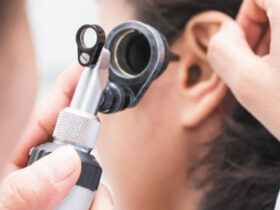By Richard J. Capiola, MD
Excessive alcohol consumption can often be dismissed as mere social activity, but for many individuals, it becomes a serious health concern. When one drink becomes one too many, it could be a sign of Alcohol Use Disorder (AUD), a condition that affects millions of people worldwide. Recognizing the signs and symptoms of problematic alcohol use is crucial for early intervention and effective treatment.
Understanding Alcohol Use Disorder
Alcohol Use Disorder, commonly referred to as alcoholism, is a chronic medical condition characterized by an inability to control alcohol consumption, preoccupation with drinking, increased tolerance, and withdrawal symptoms when alcohol use is reduced or stopped. AUD exists on a spectrum, ranging from mild to severe, and its impact can be both physical and psychological.
Signs and Symptoms of Problematic Alcohol Use
1. Loss of Control: One of the hallmark signs of AUD is the inability to limit the amount of alcohol consumed. Individuals with AUD may repeatedly try and fail to cut down or control their drinking.
2. Neglecting Responsibilities: People with AUD may neglect their responsibilities at work, school, or home due to excessive drinking or hangovers.
3. Craving and Preoccupation: A strong desire or craving to drink, coupled with spending a significant amount of time thinking about obtaining or consuming alcohol, can indicate a problem.
4.Increased Tolerance: Over time, individuals with AUD may need more alcohol to achieve the desired effect, leading to increased consumption.
5. Withdrawal Symptoms: When attempting to reduce or stop drinking, individuals with AUD may experience withdrawal symptoms like nausea, sweating, tremors, anxiety, and even seizures.
6. Social Isolation: A person’s social life may be negatively impacted as they choose alcohol over spending time with friends and family.
7. Risky Behavior: Engaging in risky activities, such as drinking and driving, while intoxicated can be a red flag for problematic alcohol use.
8. Continued Use Despite Consequences: Using alcohol even when it leads to negative consequences like health problems, relationship issues, or legal troubles is a sign of AUD.
9. Loss of Interest: Hobbies and activities that were once enjoyable may lose their appeal, with drinking taking precedence.
10. Failed Attempts to Quit: Repeated unsuccessful attempts to quit or cut down on alcohol consumption indicate a lack of control.
Diagnosing Alcohol Use Disorder
Diagnosing AUD involves a comprehensive assessment by a healthcare professional. The American Psychiatric Association’s Diagnostic and Statistical Manual of Mental Disorders (DSM-5) outlines specific criteria for diagnosing AUD. These criteria include evaluating the frequency and severity of symptoms like those mentioned above. The severity of AUD is categorized as mild, moderate, or severe based on the number of symptoms present.
Early intervention and treatment are essential for managing AUD. Effective treatments may include behavioral therapies, counseling, support groups, and, in some cases, medications that help reduce cravings or manage withdrawal symptoms. Family and friends play a crucial role in supporting individuals seeking treatment.
In conclusion, it’s important to recognize that when one drink is one too many, it might be a signal of Alcohol Use Disorder. Understanding the signs and symptoms of problematic alcohol use is key to identifying the issue early and seeking appropriate help. AUD is a treatable condition, and with the right support and interventions, individuals can regain control of their lives and achieve lasting recovery.
Dr. Richard J. Capiola is the Chief of Psychiatry for Physicians Regional Medical Center. He received his medical degree from Tulane University School of Medicine and has been in practice for more than 20 years. Call Dr. Capiola today at 239-649-7494.










